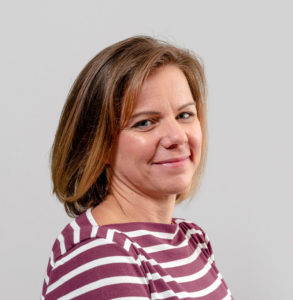Riskonet advises businesses in the “tough” insurance market
16 November 2020

Directors and boards have another issue to worry about. How will they go about securing the continuity of their organisation, now that non-life insurance premiums are increasing and coverage is becoming ever more limited? Will they simply accept and move on, will they take the fight to the insurers, or will they look for other options?
With 1 October marking the start of the non-life insurance extension season, companies have yet another bitter pill to swallow. The market is “tough” and insurers are limiting their coverage, imposing expensive prevention requirements, and raising their premiums considerably. According to insurers, climate change is the main reason for this shift, with damage caused by natural disasters causing large losses among reinsurance companies and insurers.
Noticeable effects
There are rumours that some insurers have already introduced combined ratios higher than 100 percent this year. COVID-19, regulatory changes, and a poor investment climate with low interest rates further limit insurers’ profitability. To remain profitable, insurers have started limiting their risk appetite by hiking premiums, introducing prevention requirements, and limiting coverage.
Damage limitation
In imposing prevention requirements, insurers regularly - unintentionally - miss the mark, as there is a clear discrepancy between what insurers want and what is feasible in practice, which is especially evident when it comes to measures to limit fire damage, such as sprinkler systems. “What we’ve seen is that insurers can be rather unaware of their clients’ situations and will make rather unrealistic demands as a result”, says Ron de Bruijn, Managing Partner of Riskonet International. He remembers a case in which an insurer had assessed an existing high-rise warehouse and made a staggeringly simple demand: replace this building with several other, separate buildings. “Obviously insurers should not be surprised”, says Ruben de Bruin, Manager Partner of Riskonet Netherlands, “if companies refuse to take such a measure. These recommendations show a clear disconnect from reality and can therefore prompt misunderstanding, frustration, and passivity in companies. Often, even if the insured party is willing and able to make the recommended investment, insurers will propose unrealistic deadlines.”
“An organization that has developed its own vision of safety and continuity can enter into a professional dialogue with the insurer. That way, the customer stays at the helm”
Ruben de Bruin
Riskonet Nederland
Insurers follow internal guidelines
Insurers all have their own sets of internal guidelines that force them to recommend a certain solution to insured parties, despite the fact that these solutions will regularly be incompatible with the company in question. “In our opinion, this is one of the reasons that insurers do not give enough consideration to alternatives”, says Ron de Bruijn: “Much can be gained from carrying out sound risk analyses and encouraging companies to improve risk quality.” Ruben de Bruin adds: “It’s essential to understand your client’s strategy and to propose realistic, feasible measures.”
Ron de Bruijn continues: “We can also see that companies are responding to insurers’ new moves by exploring different ways to cover risks. Using captives, comparable to a savings accounts for companies, is becoming an increasingly popular way for companies to hedge risks, and the more premiums rise, the more attractive alternative options will become.”
Clients have work to do
In today’s “tough” insurance market, it is important that companies become aware of their own responsibilities. Ruben de Bruin believes that “There is clearly a lot of work to be done by clients, too. Companies will have to up their risk management efforts, and if insurers pull back, they will have to take responsibility for limiting and covering risks themselves. The continuity of a company cannot be guaranteed with small print. Real, operational solutions are needed. Regardless of whether your insurance company has imposed stricter requirements or whether you have decided to cover your risks yourself: you will still have to invest in risk management.”
Fundamental shift
Ron de Bruijn notes that the majority of company directors are still insufficiently aware of what is going on around them. “If it is true that damage due to climate change is the main driver behind this tough market, a fundamental shift will be needed. Companies will have to have a crystal-clear vision on how to guarantee continuity.” Ruben de Bruin adds: “Organisations with their own vision in safety and continuity can enter into a professional dialogue with their insurers, allowing the client to stay at the helm.”
Own vision wins
Developing your own vision on risk management requires a lot of time and attention and serves as an important first step. Ruben de Bruin has the following recommendation for companies: “Start building up knowledge and insight, as well as good rapport with your insurer, in good time. Once you have started a dialogue, you can work together to develop solutions that are interesting for all parties involved.” In this triangle, Riskonet is emphatically on the client’s side, but it will still be necessary to make organisations more risk aware and to teach them about safety, continuity, and insurance. A key observation: we have noticed that insurers greatly appreciate clients who have a strong, individual vision on risk management, and this is exactly where Riskonet can provide invaluable support on everything from strategy to technical issues.”





